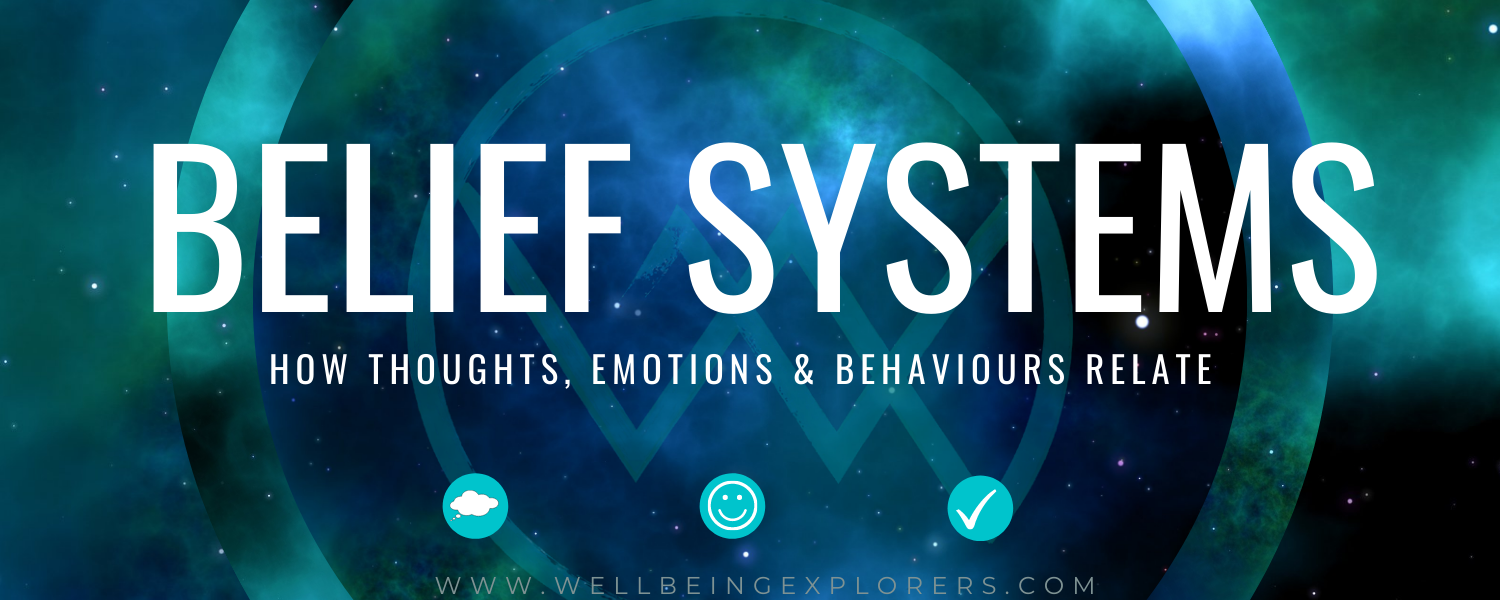Belief Systems: How Thoughts, Emotions and Behaviours Relate
“For some of our most important beliefs, we have no evidence at all, except that people we love and trust hold these beliefs. Considering how little we know, the confidence we have in our beliefs is preposterous—and it is also essential.”
Beliefs are a fascinating subject in psychology.
Beliefs are thoughts that you have thought thousands of times that often come out of important life events or memorable moments. They are mental constructions that serve as an energy saving shortcut to predict the environment and provide a model for our reactions.
We have beliefs about ourselves, others and the world around us.
The brain is a prediction making machine and one which has evolved to save energy in the most efficient way. Beliefs allow the brain to process large amounts of information and distil it quickly. Essentially, beliefs allow us to jump to conclusions.
Our belief systems are made up of:
Automatic thoughts
For example ‘pop up’ thoughts or images: I might make a mistake
Intermediate beliefs
For example Attitudes (e.g. I couldn’t stand making mistakes), Rules (e.g. I must not make mistakes), Assumptions (e.g. If I make a mistake it proves I’m stupid)
Core beliefs;
Usually formed in childhood or early adolescence and may be rigid (e.g. I’m stupid). Deep seated, usually develop due to childhood or adolescent experiences or significant life events. Can influence an individual’s conscious belief systems and behaviours.
Because beliefs are formed from repetition and subjective understanding, they are biased. This is why it is important that we challenge our beliefs, and consistently open ourselves up to new opportunities for learning. Particularly if you notice a belief being triggered that elicits an unhelpful response such as judgement, fear or outright discrimination.
Our belief systems work as a closed circuit involving our thoughts, emotions and behaviours. We experience something in the environment that elicits either a thought or emotion (both, separately, and/or one triggers the other; they are intertwined!). This then actives your belief systems as your brain automatically goes to the easiest option.
In order to enact any change, we have to alter something in the loop.
Thoughts and behaviours are the easiest to change. Our core beliefs are harder to change but this can be done with repetition and time of intentional thinking and action. Think of this change occurring in the present; you are living the change. For example, if you want to be a more grateful person, start thinking and acting how a grateful person acts (note it is YOUR idea or what you feel to be true of a grateful person. Lean into your heart and intuition; what 'do I' and 'could I' not 'shoulds' or 'need' to do or think)"
Neuroplasticity is your friend here! The more times you think a thought, the stronger the neural pathways become in your brain. The stronger the neural pathway, the more automatic the thought becomes.
Therefore, you can literally re-train your brain and change your beliefs by thinking more helpful thoughts that are in line with your values, strengths and how you want to think, behave and view the world.
Self-Reflection Questions:
What are your core beliefs?
What do you believe to be true about yourself, others and the environment?
What beliefs are holding you back from self-mastery, multidimensional wellbeing and peak performance?
What beliefs are you going to challenge yourself on? When you start to think in a way that reinforces this belief, how will you challenge and change your thoughts?
What emotions are tied up with your core beliefs?
What unhelpful beliefs do you hold about others and the environment? What evidence could you look for and what novel experiences could you put yourself through that would encourage new learning and changing perspectives?
Commit to curiosity over your beliefs and challenge your unhelpful ones.
Don’t forget your beliefs are about yourself, others and the world around you.
They permeate every thought and decision.
Bring the unconscious conscious and update the beliefs that are no longer serving you.
Wellbeing Explorers can support you to challenge and change your unhelpful beliefs.
Remember to ask yourself these three questions when reflecting on your beliefs:
1) Is it helpful? (or unhelpful)
2) Is it coming from a healthy place? (or a triggered wounded response)
3) Is it in your highest good?
Get in touch to book your free session to see if Positive Psychology Coaching is right for you on your journey of Self-Mastery and an Adventurous Way of Being.





